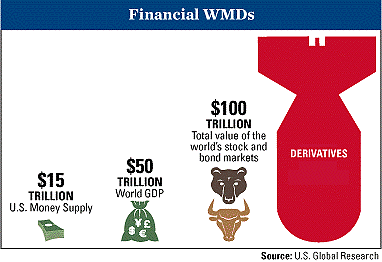Andylusion
Platinum Member
You need to stop just believing whatever lies they tell you
Grand
then what's your metric Andy?
how's this>
~S~
Since when do you think 'wealth is distributed'?
Wealth is the result of wise choices with money. People who make bad choices, end up poor. People who make good choices, end up rich. That's how life works.
There is no system in the world, where you... or 'government' controls how wealth is distributed.
If you produce something of value to your fellow people.... you will become wealthy.
If you produce nothing of value to your fellow people.... you will become poor.
Similarly..... what you do with your money, is equally important in this equation.
If you blow your money non-stop... you will be poor, no matter how much money you earn.
If you wisely save and invest your money non-stop.... you will be wealthy, no matter how much money you earn.
Let me ask you... who do you think will be super wealthy? An international pop music star? Or a janitor?
Michael Jackson dies owing up to $500m
A janitor secretly amassed an $8 million fortune and left most of it to his library and hospital
Michael Jackson, made an estimated BILLION dollars in his life time. When he died, he was facing bankruptcy. The only reason he even attempted the "This is it" tour, is because it was either go on tour or face bankruptcy.
Meanwhile this Janitor, retired with $8 Million dollars.
People who are smart with money, will end up wealthy...> AND THEY SHOULD <
And those who waste their money, will end up poor......> AND THEY SHOULD <
This ridiculous idea that you are going to "redistribute wealth" is insane. And more importantly, it won't work.
If you take all the wealth in this country, and redistribute it equally (which is impossible but we might as well continue the myth).... you redistribute the wealth in this country, and all the poor will end up poor again, and the rich will end up rich again. Nothing will change. How do I know this?
Because the reason the poor are poor, is because they are terrible with money.
Case and point.... Two people get $10 Million dollars. One person is a poor person, the other a rich person.
If redistributing wealth worked, then the poor person should end up wealthy too.
Hamilton lottery winner fritters away $10 million
Sharon Tirabassi won $10 Million dollars in the lottery. Not even 10 years later, she's catching the bus, to a part time job, to pay rent and feed her kids. Doesn't even own a car now.
Giving money to poor people, because "I don't like the wealth distribution!" is not going to make them wealthy. They'll blow the money, end up poor, and I know that because that's why they are poor to being with.
Take that same $10 Million dollars, and give it to a wise investor..... Steve Jobs got $10 Million dollars when he was kicked out of Apple Computer 1985. With that $10 Million dollars, Steve Jobs invested in a new company. He expanded it, and added more people, and in 1995, nine years later, Pixar put out Toys Story, which was a box office smash hit.
Steve Jobs sold Pixar to Disney in 2006 for $7.8 Billion dollars.
This is why wealthy people are wealthy, and poor people are poor.
Your video is irrelevant. There will never be a system where poor people make bad choices and up wealthy, and rich people make good choices, and end up poor. That system would never work.
And besides that..... we've seen how your system actually operates in real life.
Venezuelans eat rats and dogs as the economy collapses | Daily Mail Online
That's your system.
And even Europe is figuring this out.
Macron fights 'president of the rich' tag after ending wealth tax
They have tried the wealth tax in Europe. It was disaster as the wealthy simply left.
